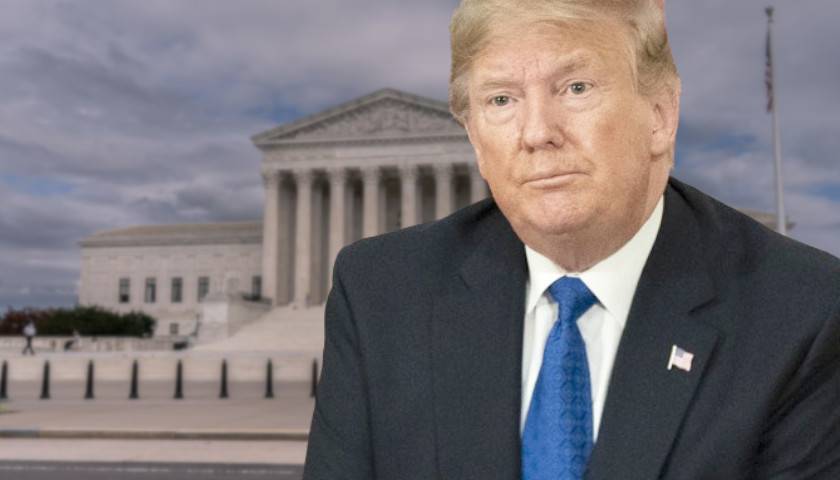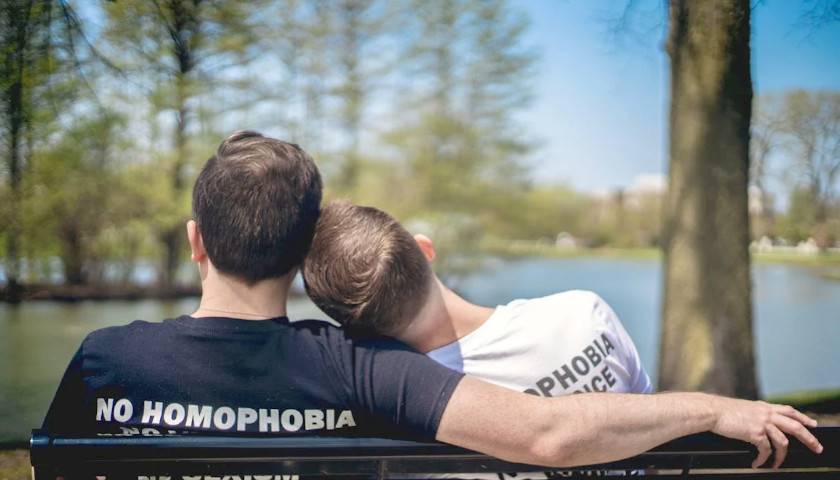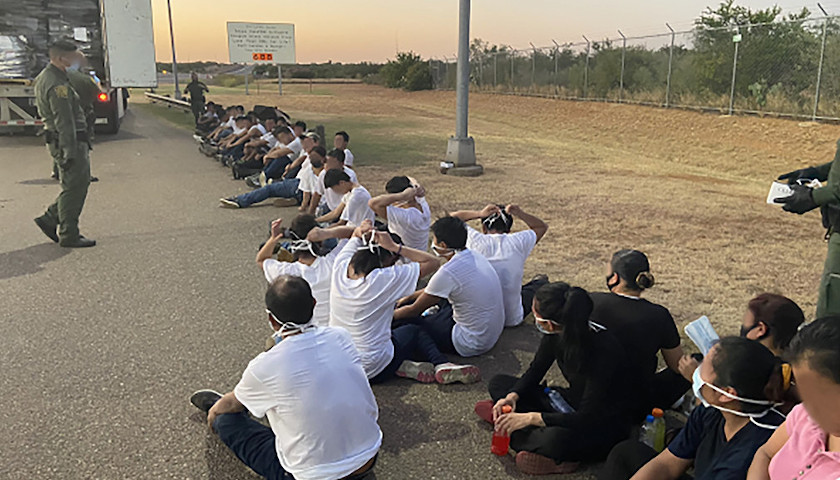by Hans von Spakovsky
In what may turn out to be the most pivotal election case since Bush v. Gore, the U.S. Supreme Court issued a short order on Jan. 5 granting the request by former President Donald Trump asking the court to overturn the Colorado state Supreme Court’s Dec. 19 decision disqualifying him from appearing on the state’s presidential primary ballot. The U.S. Supreme Court moved with unprecedented speed; Trump filed his petition for certiorari on Jan. 3, and the court granted the appeal only two days later.
The case has been put on what, for the Supreme Court, is a “rocket docket.” Trump’s brief and any amicus briefs supporting the former president in Trump v. Anderson have to be filed by Jan. 18; the challengers’ brief and amicus briefs supporting Trump’s removal have to be filed by Jan. 31. Trump’s reply brief is due on Feb. 5, and oral arguments will be held on Feb. 8.
There is no doubt that getting into the Supreme Court for the Feb. 8 oral argument will be the hottest ticket in town since either the Dobbs case overturning Roe v. Wade or the case challenging the constitutionality of Obamacare, when people started lining up the night before at the court’s location behind the U.S. Capitol. The court is also sure to be flooded with amicus briefs on both sides, given the key importance of this case to the 2024 election.
In fact, just before the court issued its order late in the afternoon on Jan. 5 accepting the case, 27 states, led by the attorneys general of Indiana and West Virginia, Todd Rokita and Patrick Morrisey, filed an amicus brief on Trump’s side urging the court to take the case as soon as possible to “head off the chaos that the Colorado decision will produce” and “erase a standardless political judgment” that violates the Constitution.
The chaos the states warn about is very real given that there are more than a dozen of these challenges underway in different states. Moreover, like Colorado, the Maine secretary of state has also disqualified Trump from her state’s ballot, while other states like Minnesota and Michigan have rejected these challenges.
One thing to keep in mind: Trump will remain on the presidential primary ballot in Colorado despite the Colorado court’s 4-to-3 decision declaring that Trump was disqualified pursuant to Section 3 of the 14th Amendment.
In its Dec. 19 order, the Colorado court said that if review was sought in the U.S. Supreme Court by Jan. 4—the date the Colorado secretary of state had to certify the candidates’ names on the presidential primary ballot—the secretary would “be required to include President Trump’s name on the 2024 presidential primary ballot until the receipt of any order or mandate from the Supreme Court.” Since Trump filed his petition on Jan. 3 and the Supreme Court did not immediately reject it by the Jan. 4 deadline, his name will appear on the ballot.
As I have previously explained, there are numerous reasons, both constitutional and statutory, why the Colorado court’s decision was wrong.
Section 3 of the 14th Amendment, which was aimed at preventing members of the Southern Confederacy who had engaged in insurrection and rebellion from serving in the federal or state governments, does not apply to Trump because he was never an “officer of the United States,” a precondition for the application of Section 3.
The Supreme Court has previously held that an “officer of the United States” is a term that only applies to individuals appointed to posts within the executive branch, not those elected.
Furthermore, Congress has not passed any legislation providing a means to enforce Section 3, and there are serious questions of whether Section 3 is even still legally viable because of two amnesty acts passed by Congress in 1872 and 1898.
The first in 1872 removed all “political disabilities” imposed by Section 3 with certain exceptions related to the Civil War, and the second in 1898 got rid of those remaining exceptions with no language preserving the disqualifications of Section 3 for future cases.
Additionally, Trump has never been convicted or even charged with insurrection or rebellion, and was, in fact, acquitted of “incitement of insurrection” by the Senate after his second impeachment.
Thus, there are numerous reasons for the court to overturn the Colorado court’s misinterpretation and misapplication of the 14th Amendment, a decision that effectively disenfranchised the almost 4.5 million registered voters in Colorado whose right to make their own choice about who should be a candidate for president was stolen by four judges.
If the U.S. Supreme Court doesn’t overturn this misguided decision, millions of voters in other states will be similarly disenfranchised, striking a devastating blow to the democratic process.
– – –
Hans von Spakovsky is a senior legal fellow at The Heritage Foundation, a former commissioner on the Federal Election Commission, and former counsel to the assistant attorney general for civil rights at the U.S. Department of Justice. He is a member of the board of the Public Interest Legal Foundation.




